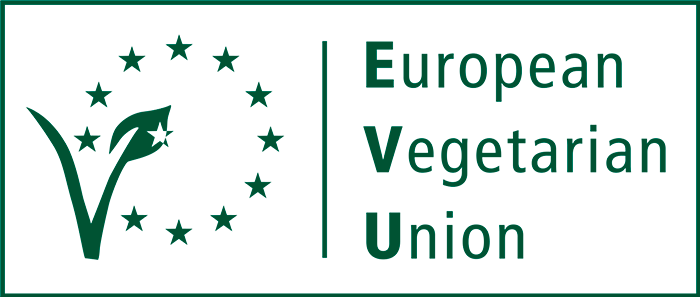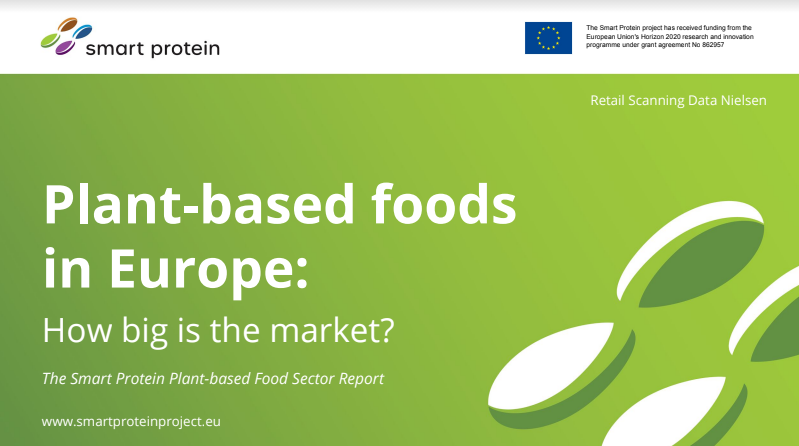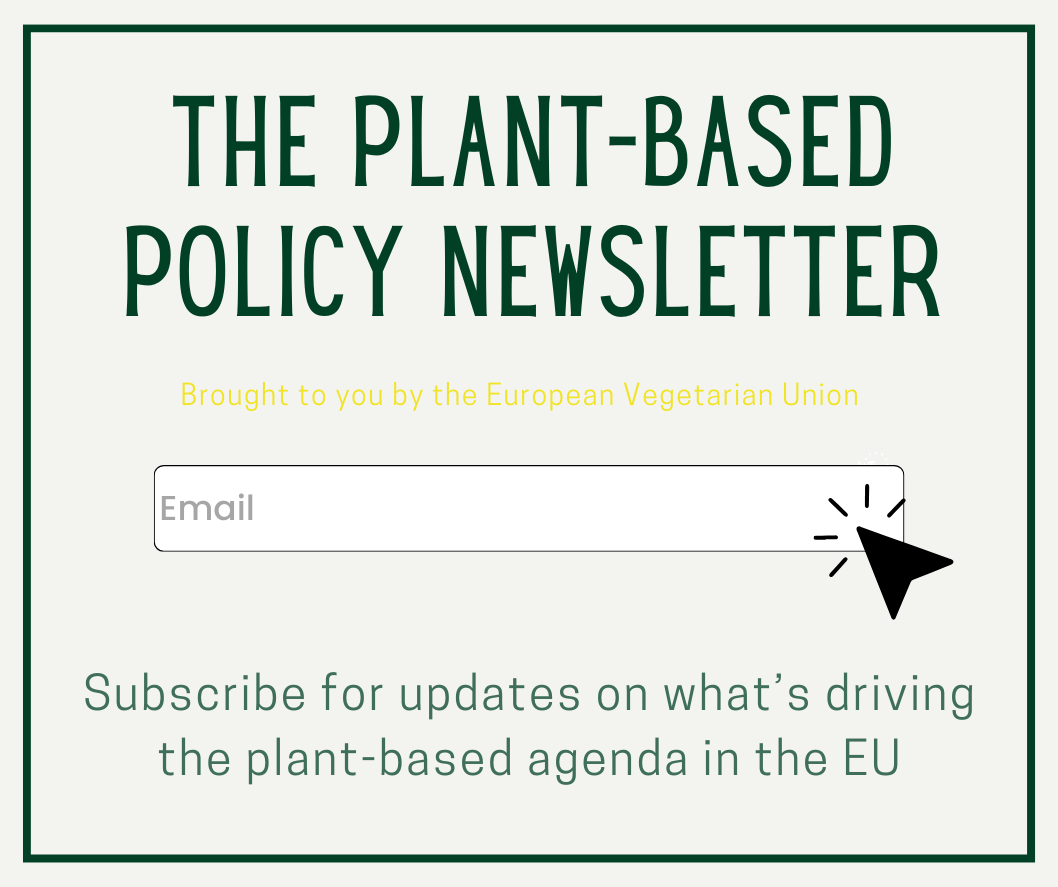The Smart Protein Project is a consortium of researchers from Cork University College and more than 30 partner institutions around Europe such as agricultural networks, plant breeders and food ingredient producers. This particular research on the plant-based food market was managed and compiled by EVU member ProVeg and the University of Copenhagen.
The report compares retail data from 11 European Countries: Austria, Belgium, Denmark, France, Germany, Italy, Poland, Romania, Spain, the Netherlands and the UK. The evolution of growth was observed over two consecutive periods: 2018-2019 as well as 2019-2020 and focuses on plant-based (pb) milk, meat, yoghurt, cheese, fish and ice cream.
The figures show a unanimous trend: the plant-based food market is growing quickly. All countries, except Italy, show double-digit growth in sales value and sales volume during the two consecutive periods. Germany has the highest numbers with 97% growth in plant-based sales value and 80% in sales volume with a total growth of €817m. The UK comes in second place, where the sales values for pb food grew 73% and 67% in volume, followed by Austria, Romania, The Netherlands, Spain, Denmark, France, Belgium and finally Italy with only 1% growth in sales value and 5% growth in sales volume. Nevertheless the total growth in sales value in Italy represents €490m. Poland is to be studied separately since numbers are for the plant-based milk market only.
Sales value and volume in discount stores are also strongly increasing which means plant-based food is becoming more accessible.
The two leading markets are plant-based milk and plant-based meat. Oat, soy and almond milk are among the three most popular plant-based milks with the strongest growth in sales value for oat-milk in Denmark, Belgium, Germany, the Netherlands, Italy, Spain and Poland.
For the UK, The Netherlands and Belgium, the leading market is plant-based meat which represents respectively €502m, €174m and €48m with a general preference for plant-based refrigerated meat such as burgers and sausages over frozen plant-based meat.
Plant-based yoghurts are also well established on the market, especially in France (€87m), Belgium (€26m), Austria (€16m) and finally Spain which is experiencing double-digit growth (55%). The Belgian plant-based yoghurt market is exploding in discount stores (497%)*. Plant-based yoghurt made from soy is the most commonly marketed type of yoghurt.
In addition to the two main markets previously described, new products are starting to gain visibility on the market, such as plant-based cheese and especially sliced cheese with great sales value in the Netherlands (400%)* and Denmark. Plant-based cheese is also growing in the UK with total growth of 165%. Germany is in the early stages of offering pb cheese and fish. Finally, interest for plant based sweet confectioneries is growing in the UK (94% growth is sales value) and in Italy for pb ice creams.
The numbers speak for themselves: Consumers demand for plant-based alternatives continues to evolve and their market is expanding.
All figures and numbers can be found here.
*Growth rates can be very high in the early days


